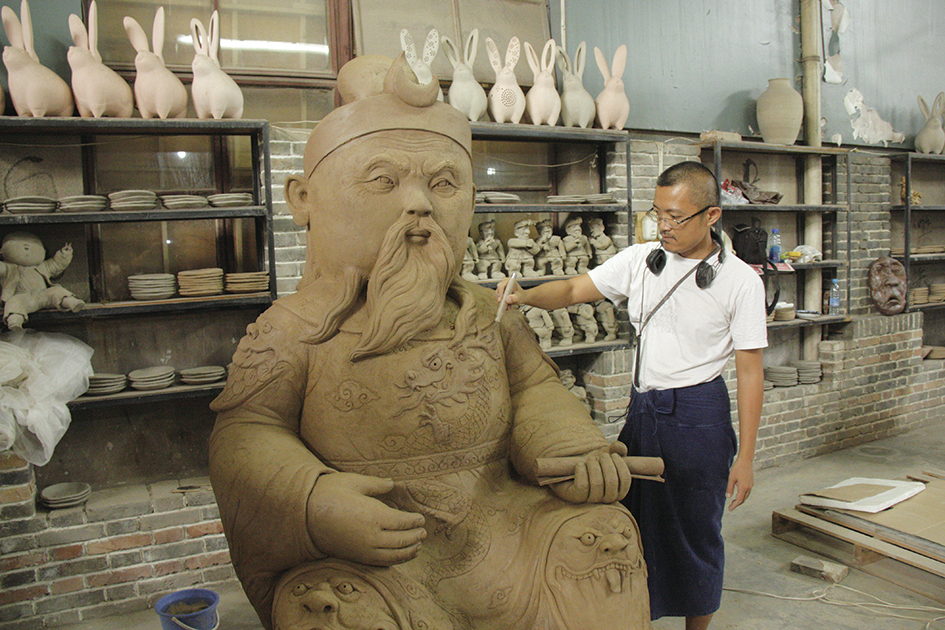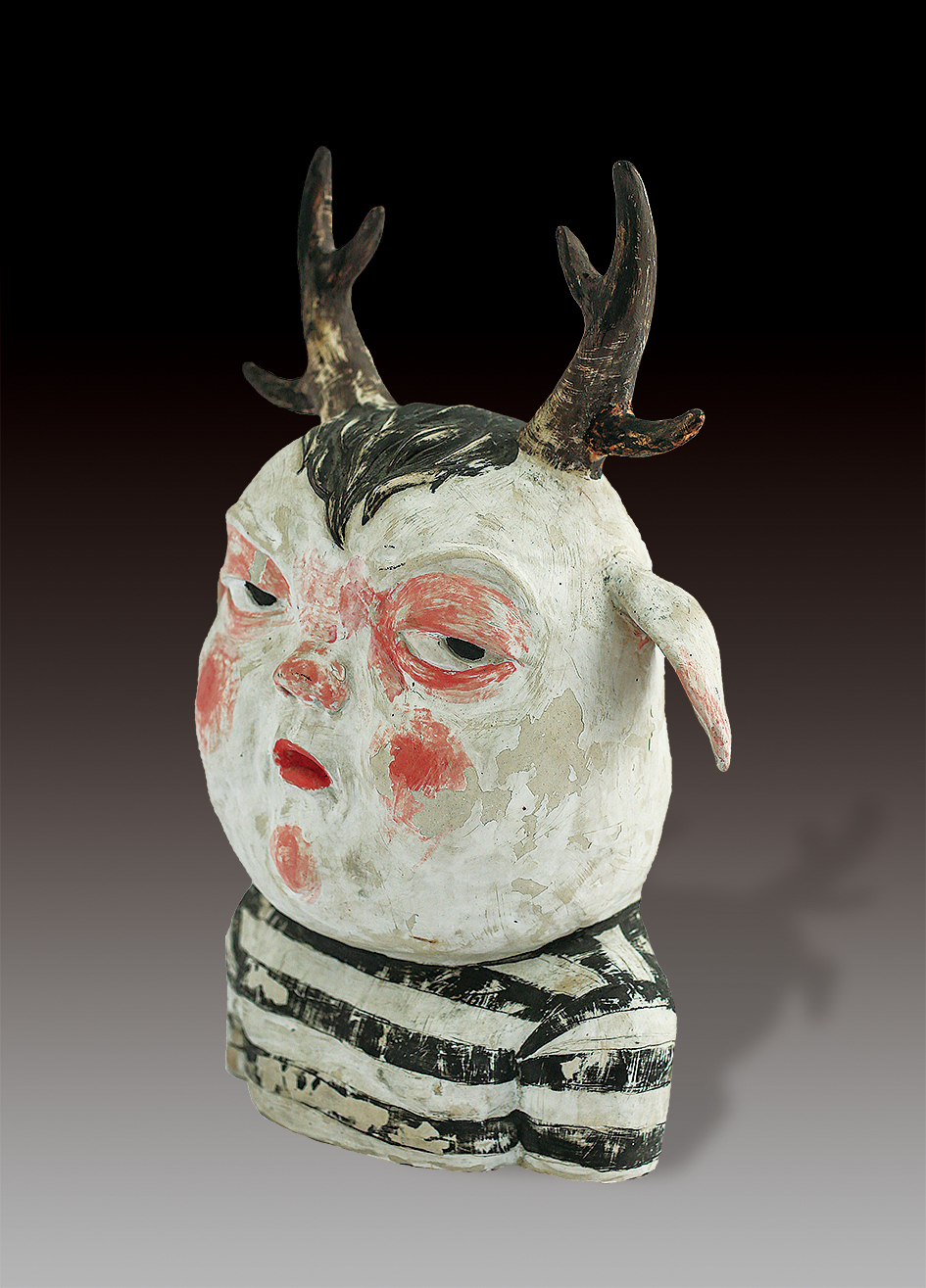
Naidee Changmoh, a Thai artist, has dedicated years to ceramics and has participated in numerous exhibitions worldwide. His works often feature figurative, cartoon-like forms to narrate stories that have left a profound impression on him. Many of his creations are collected in prominent art institutions across the globe.

The creation of Uncle is Not Happy reflects a specific context tied to Naidee Changmoh’s artistic background and the societal themes he explores. Emotions have become increasingly complex and multifaceted in the fast-paced, high-pressure modern society. Feelings of anxiety, exhaustion, and dissatisfaction are commonplace in daily life. Naidee Changmoh astutely captures this social phenomenon, transforming it into the visual language of Uncle is Not Happy. By personifying these negative emotions, he creates a character that resonates deeply with viewers, allowing them to see reflections of their struggles and pressures.
Modern ceramics emphasize individuality and aesthetic exploration, encouraging artists to break free from traditional constraints and showcase unique ideas and creativity. Influenced by this movement, Naidee Changmoh employs exaggerated expressions and unconventional forms in Uncle is Not Happy, embodying the work with a distinctive personality and artistic allure. These qualities make the piece stand out among contemporary ceramics, demonstrating the endless possibilities of modern ceramic art.
On a personal level, the artist may have experienced similar feelings of “not happy” or gained profound insights into the emotional states of those around him. These observations and emotional reflections serve as the foundation for Uncle is Not Happy, channeling his sentiments and life understanding into the artwork. As a result, the piece transcends its material form to become a vessel for emotional expression and catharsis.
Uncle is Not Happy strikes a universal chord by encapsulating the emotional struggles prevalent in modern society. It is not merely a portrayal of an individual’s emotions but a profound reflection on the collective mental state shaped by contemporary living. In a fast-paced, high-stress living environment, negative emotions such as anxiety, exhaustion, and dissatisfaction follow. This ceramic art is like a mirror in which every viewer can see themselves or the people around them, evoking empathy and self-reflection. It reminds us not to neglect our inner emotional needs in our busy lives, to learn to pay attention to our own and others’ emotional changes and to give understanding and care.
Uncle is Not Happy reflects societal realities and emotional exploration, embodies the evolving trends of modern ceramics, and expresses the artist’s emotions and philosophy of recreation. Furthermore, it demonstrates innovation and respect for cultural traditions and enriches the piece with profound conceptual depth and unique artistic value.
Last article:The 12th China Changchun International Ceramics Symposium
Next article:null